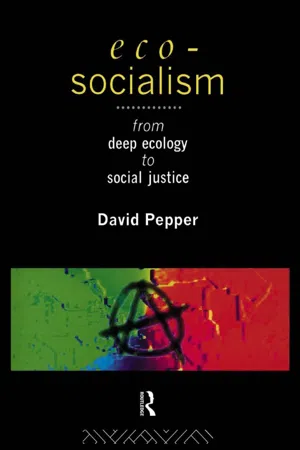Social Sciences
Marxist Perspectives on the Family
Marxist perspectives on the family view it as a social institution that serves to maintain and reproduce the capitalist system. They argue that the family perpetuates inequality by passing down property and reinforcing class divisions. Additionally, Marxists emphasize the role of the family in providing a reserve army of labor for capitalism and in socializing individuals to accept their place in the existing economic structure.
Written by Perlego with AI-assistance
Related key terms
3 Key excerpts on "Marxist Perspectives on the Family"
- eBook - ePub
Women's Oppression Today
The Marxist/Feminist Encounter
- Michèle Barrett(Author)
- 2014(Publication Date)
- Verso(Publisher)
Roy Bhaskar and others have argued, from the point of view of the philosophy of science, that Marxism necessarily represents a realist science whose object is the analysis of relations and the collective expressions of those relations. Bhaskar argues, in my view correctly, that society, as an object of inquiry, cannot be read off the empirical world or reconstructed from subjective experience. It consists of structures of relations which individuals reproduce (albeit unintentionally): ‘the conception I am proposing is that people, in their conscious activity, for the most part unconsciously reproduce (and occasionally transform) the structures governing their substantive activities of production. Thus people do not marry to reproduce the nuclear family or work to sustain the capitalist economy. Yet it is nevertheless the unintended consequence (and inexorable result) of, as it is also a necessary condition for, their activity’. 39 Bhaskar argues that such an analysis, based on the reproduction or transformation of structures of relatively enduring relations, allows for an account of historical change (as well as clearly allowing for society as a possible and legitimate object of knowledge). From this position it can be seen that the definition of concepts is crucial. A first step in the direction of any realist analysis must be the construction of definitions that have an explanatory rather than descriptive character. In a sense the various problems and confusions discussed in the uses of concepts such as ‘patriarchy’ and ‘reproduction’ result from the absence of systematic definitional work and the ad hoc usages that are its result. Marxist feminist theory is at present attempting to constitute a coherent perspective from various fragmentary bodies of work, and it is at present in an early stage with many crucial problems still unresolved - eBook - ePub
- David Blackledge, Barry Hunt(Authors)
- 2019(Publication Date)
- Routledge(Publisher)
Part II The Marxist PerspectivePassage contains an image
Our purpose in this chapter is to provide an introduction to the main ideas and issues within Marxist theory as a basis for an understanding of the Marxist perspective on education.6 The Marxist Perspective – An IntroductionMarxist theory can be divided into two parts. First there is the theory of society and history that is usually referred to as 'historical materialism'. It is a conception of how society changes and how the various parts of society are related to one another. Second there is the Marxist concept of man or human nature, which is interwoven with a theory of the 'good society'. The notions of 'alienation' and 'communism' are here central.Historical Materialism
The starting-point of a Marxist analysis is the view that it is what people do to keep alive or maintain themselves in existence that really matters. The basic fact about society is how men and women produce the means to live. It is therefore economic activity, or production in a wide sense of the word, that is fundamental. Everything else that people do and that goes on in society is in some way related to or derived from this. Hence Marxists see society as composed of two major parts: (1) the economic structure or 'base' or 'foundation' and (2) the 'superstructure' of other social institutions and practices such as politics, education, religion, family life, and men's ideas, beliefs and values.However, over and above this short statement one enters into areas of controversy. For, as Kolakowski points out: 'There is scarcely any question relating to the interpretation of Marxism that is not a matter of dispute.'1 In what follows we shall explore some of these disputes.Base and Superstructure
First there is the 'base/superstructure' issue and the related controversy of 'determinism versus voluntarism' in Marxist thought. For, although Marxists believe that everything that goes on in the superstructure of society is in some way related to economic activity (or the base), they differ in their views as to the nature of that relationship. On the one hand there are those who believe that the economic base determines the superstructure in the sense that, for example, a society's educational system, or its form of government, or the type of family prevalent at any particular time is a direct consequence of the nature of its economic system. Furthermore, as the economic base changes, so too do these other social, political and cultural institutions. As Marx himself says: 'With the change of the economic foundation the entire immense superstructure is more or less rapidly transformed.'2 - eBook - ePub
Eco-Socialism
From Deep Ecology to Social Justice
- David Pepper(Author)
- 2002(Publication Date)
- Routledge(Publisher)
Without understanding this system we cannot understand why it interferes with environmental systems ‘to such an extent that this threatens [our] continued existence. Only when this analysis is available’ can we consider exactly how the environment might be protected from the xundesirable consequences of human use (Johnston 1989). It is Marxism’s socioanalysis of capitalism which makes it so penetrating, revealing and ultimately ‘shocking’, as Heilbroner (1980) puts it. This is an insight into the ‘social relations’ that underlie the economic system’s features and laws (‘social’ relations here includes relations between people, and between people and nature). These relations are not immediately clear to us—for instance we may see a commodity as a ‘thing’ rather than the set of social-economic relationships between people that it really is a product of. So a level of (social) reality beneath the surface of history is revealed. Marxism is therefore a structuralist approach to history and to society-nature relations. There are so many Marxisms and Marxists that it is difficult for us to perceive that they have any coherence. This is why Heilbroner’s (pp. 20–1) definition of the four essential elements of Marxism is useful. If your perspective on history and social change embraces them all, you are a Marxist. A view of capital which starts from Marx’s socioanalysis is one. A second is a dialectical approach to knowledge, considering the ‘innermost nature of things to be dynamic and conflictual rather than inert and static’. A third is its materialist approach to history—highlighting the importance of how we organise together and relate, socially, to produce the means of existence, and how this influences other aspects of society, producing class struggle as an element of social change
Learn about this page
Index pages curate the most relevant extracts from our library of academic textbooks. They’ve been created using an in-house natural language model (NLM), each adding context and meaning to key research topics.


